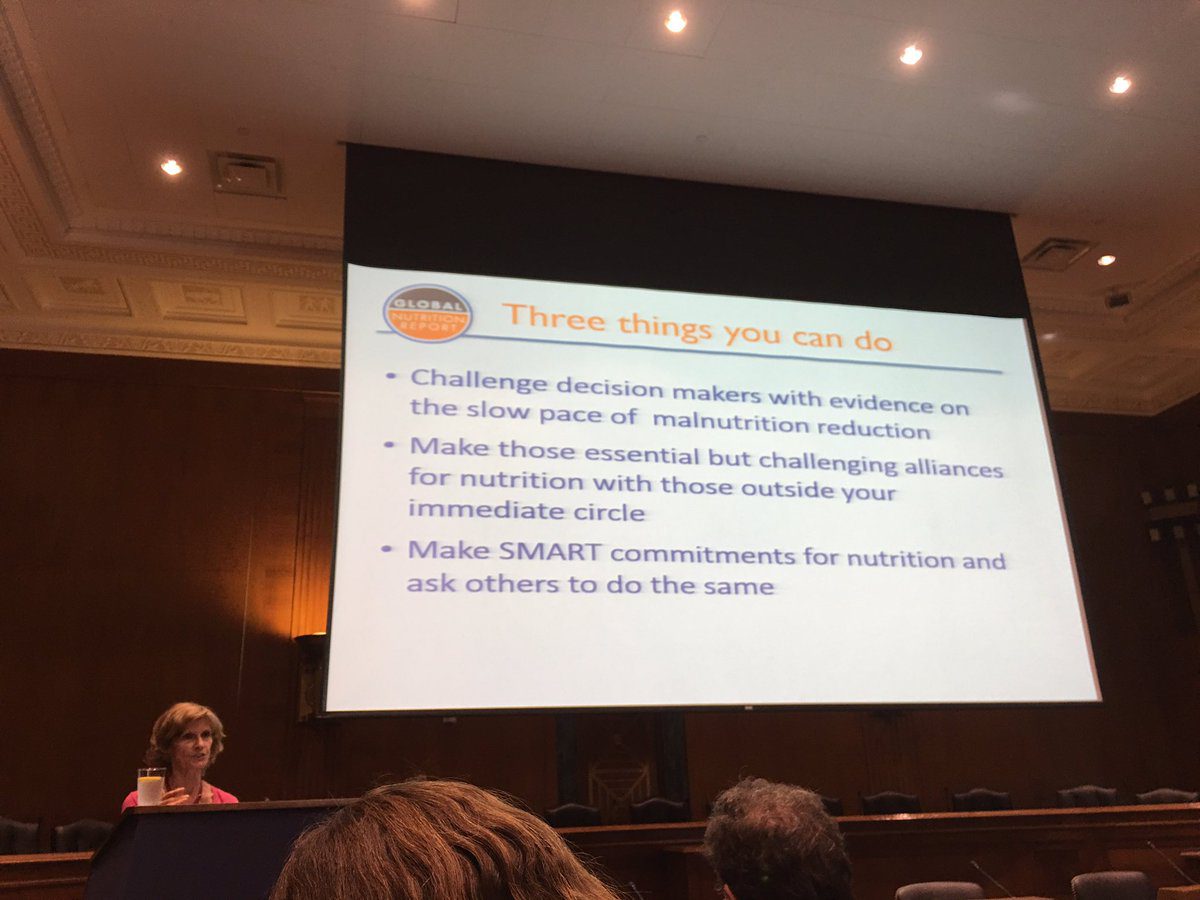Washington, D.C. – A new report finds that malnutrition remains pervasive globally and has not received the attention it deserves. The 2016 Global Nutrition Report (GNR) was launched today in seven major capitals across the world, including Washington, D.C.
Malnutrition affects 1 out of 3 people globally. The effects of malnutrition include wasting, stunting, obesity, diabetes, and heart disease. It is estimated to reduce the gross domestic product of countries in Africa and Asia by 11 percent.
During the Washington, D.C., launch, which Bread for the World co-hosted, the United States announced its new U.S. Government Global Nutrition Coordination Plan 2016-2021. Bread believes the plan will help U.S. agencies work together more effectively to achieve global nutrition targets.
“We are delighted the United States has fulfilled a commitment made at the 2013 Nutrition for Growth Summit and has released its global nutrition coordination plan,” said Asma Lateef, director of Bread for the World Institute. “The plan’s implementation will make it easier to track investments in global nutrition programs.”
Good nutrition is a foundation for good health, education, and a productive life. High levels of malnutrition put progress toward ending hunger at risk. However, solutions to malnutrition exist and with adequate funding can be quickly scaled up.
Unfortunately, the world has underinvested in nutrition, hampering efforts to achieve the global nutrition targets set by the World Health Assembly. “We hope the new global coordination plan will accelerate the impact of existing U.S. investments in nutrition,” said Lateef.
According to the global nutrition report, ending the malnutrition crisis will require a three-fold increase in funding. Bread’s 2016 Offering of Letters campaign calls for the U.S. to double its funding for its international nutrition programs. While this is not enough, it is a down payment with a very high return on investment.
“We hope leaders everywhere heed the GNR’s call to make ‘SMART’ commitments that are ‘specific, measurable, achievable, relevant, and time-bound.’ This is key to accountability. The U.S.’s global nutrition coordination plan begins to do that, but needs to be bolstered with new resources,” said Lateef.



